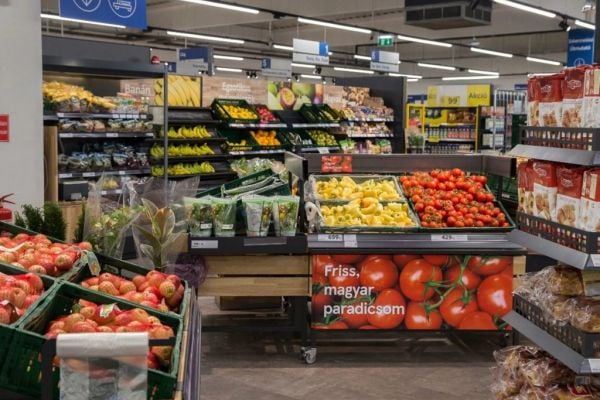Hungary's government could decide on fresh price caps on foodstuffs within days to curb inflation, which could peak around 25% by the end of the year, minister for development Marton Nagy told Inforadio.
Prime Minister Viktor Orban announced last month that the government could extend the scope of price caps on fuel and some basic foods over the following weeks, without giving details of which groceries could be affected.
Price Caps
The government put a cap on the price of milk, sugar, flour, sunflower oil, pork leg and chicken breast in February to try to shield households from soaring costs, while fuel prices and mortgage rates have also been capped.
In order to curb inflation, the price caps need to be upheld, Nagy said. "In case of food price caps, the range of products with a price cap could be widened, and the government could make a decision on these in the next few days," he said.
"The future of these price caps will be determined by inflation, which has not peaked yet," he said.
He said October inflation edged higher to 21% and "it could be near 25% by the end of the year where it could turn around".
Data on October inflation is due later this week.
Nagy said the economy could grow by more than 4.5% this year, before slowing next year.
Inflation
Hungarian inflation surged to more than 20% in September, exceeding market expectations, fuelled by a 35.2% increase in food prices and a 62.1% increase in energy prices after Orban's government curtailed utility bill subsidies for some households.
Nationalist Orban has sharply criticised the European Union for imposing sanctions on Russia over its invasion of Ukraine, saying they had failed to weaken Moscow meaningfully while causing a surge in food and energy prices.
Economists polled by Reuters see average inflation rising to 15% next year from 14% expected in 2022, with price growth exceeding the central bank's 2% to 4% target range even in 2024.
Combined with falls in the forint to record lows, soaring inflation forced the National Bank of Hungary to overhaul its monetary policy framework in mid-October in an emergency move and introduce a quick deposit tool at an 18% rate. This has supported the forint.
News by Reuters, edited by ESM. For more A-Brands news, click here. Click subscribe to sign up to ESM: European Supermarket Magazine.














